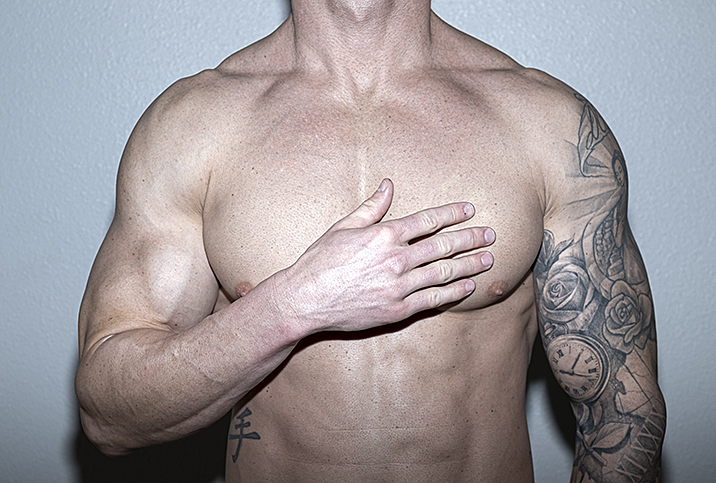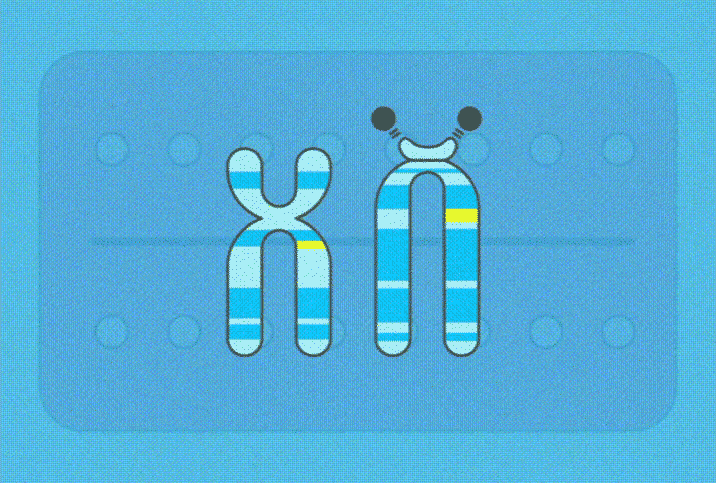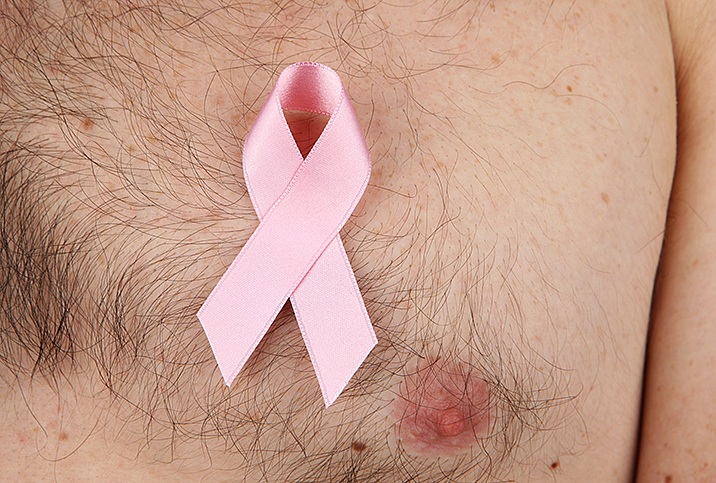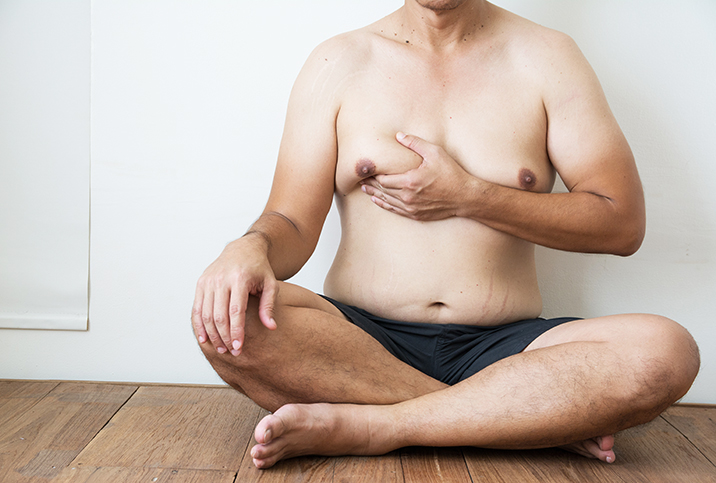5 Things Every Man Should Know About Male Breast Cancer

While it is relatively rare, male breast cancer can pose a serious—even deadly—threat to your health.
Mammograms are for men, too.
To learn more about this disease, its symptoms, prevention and treatment, Vicki Singer Wolf, co-founder of the nonprofit organization HIS Breast Cancer Awareness, shared a few things you may want to know.
1. Male breast cancer can happen to you
“Most people—and this includes people in the medical world—are not aware that men can be diagnosed with breast cancer,” Singer Wolf said. “We don’t think of men as having breasts, but everyone does have breast tissue. During puberty, boys’ breasts stop developing, unlike girls. However, both have breast tissue and can be diagnosed with breast cancer.”
This ignorance can prove dangerous. Women who notice changes or abnormalities in their breasts are more likely to reach out to their doctor. They’ve typically heard about the importance of breast health since they were preteens. But men who are unaware of their risk factors may shrug off those same warning signs.
“Awareness and education are the first steps to receiving an early diagnosis, which can help save lives,” Singer Wolf said.
2. Male breast cancer is uncommon but serious
Many more women die of breast cancer each year, but the statistics show the fatality rate is actually higher for men than women. “Male breast cancer accounts for about 1 percent of all breast cancers,” Singer Wolf said. “Approximately 2,600 men will be diagnosed each year and over 500 will die.”
While it is relatively rare, male breast cancer can pose a serious—even deadly—threat to your health. The reason is twofold.
The lack of awareness frequently results in breast cancer being diagnosed later in men than in women. And the further it goes undetected and untreated, the more serious the prognosis. “Men have less breast tissue, causing (breast cancer) to spread quicker to other areas of the body,” Singer Wolf said.
Just like women, men can have surgery to remove their breasts.
3. Some men are more susceptible to breast cancer
Surprisingly enough, when it comes to breast cancer, “the risk factors in men are the same as in women,” Singer Wolf said. “Higher levels of estrogen, family history, age and lifestyle are all contributing factors, as well as genetics and the mutation of specific genes, such as BRCA1 and BRCA2.”
4. Male breast cancer has signs and symptoms
Many more women die of breast cancer each year, but the statistics show the fatality rate is actually higher for men than women. There are also steps you can take to detect the presence of cancer earlier, resulting in a better prognosis.
Although male breast cancer doesn’t always present itself in a conspicuous way, a handful of signs and symptoms are associated with the disease.
“Symptoms of breast cancer in men can be a change or inversion to the nipple, dimpling of the skin, redness, itching of the nipple as well as any type of discharge from the nipple,” Singer Wolf said. “Breast cancer that has metastasized to the bones may also produce bone pain at the sites and, like other cancer symptoms, can include weight loss and weakness.”
Regular breast self-examinations can alert you early to changes in the feel of your breast or the texture of your skin. You could also ask your doctor to include an examination of your breasts as part of your annual checkup. Any abnormalities can then be followed up with additional testing, such as magnetic resonance imaging (MRI).
If you notice any of these symptoms, immediately reach out to your primary care physician to find the root cause.
“It’s important to note that not all doctors and nurses are aware of male breast cancer. Being your own advocate is extremely important and may save your life,” Singer Wolf said. “You know your own body, so request additional testing if something doesn’t feel normal.”
5. You could consider genetic testing
You may be able to help reduce your likelihood of developing male breast cancer.
“Eating a healthier plant-based or Mediterranean diet, choosing organic foods that eliminate many added hormones, exercising, staying within a recommended weight range and reducing stress will help,” Singer Wolf said.
“Men can also have genetic testing completed if there is a family history,” Singer Wolf said. “If men carry a genetic mutation such as BRCA1 or BRCA2, they can also begin receiving a mammogram and/or ultrasound starting at the age of 35 and then sometimes rotating with a breast MRI every six months.”
The bottom line
Knowing the signs and symptoms of breast cancer and taking preventive action are the best steps you can take for your health.
If you do receive a breast cancer diagnosis, know that you won’t have to go it alone. Turn to one of the many medical professionals, support groups and nonprofit organizations devoted to male breast health, including the one co-founded by Singer Wolf.
“HIS Breast Cancer Awareness was founded to help with awareness, education and support to help save lives, and so men know they are not alone with a breast or hereditary diagnosis,” Singer Wolf said.
Do you need a new doctor? Giddy Telehealth makes it simple. Use the convenient online portal to browse hundreds of healthcare professionals in the full range of medical fields. Many offer same-day appointments or video consultations.


















